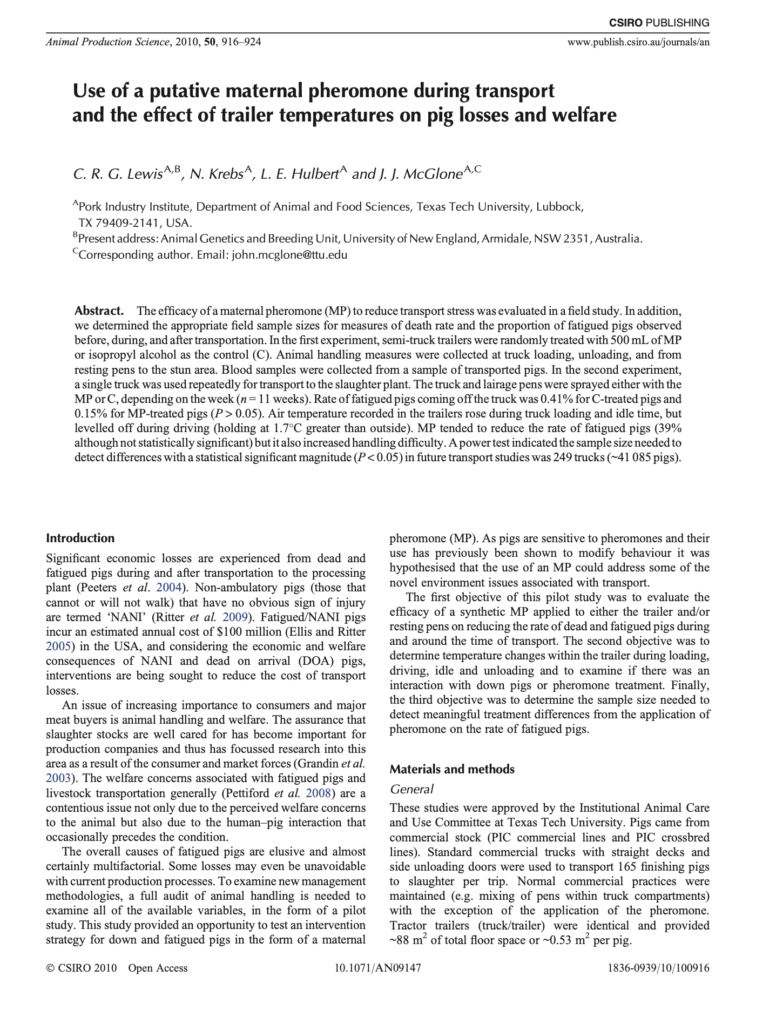Abstract:
The efficacy of a maternal pheromone (MP) to reduce transport stress was evaluated in a field study. In addition, we determined the appropriate field sample sizes for measures of death rate and the proportion of fatigued pigs observed before, during, and after transportation. In the first experiment, semi-truck trailers were randomly treated with 500 mL of MP or isopropyl alcohol as the control (C). Animal handling measures were collected at truck loading, unloading, and from resting pens to the stun area. Blood samples were collected from a sample of transported pigs. In the second experiment, a single truck was used repeatedly for transport to the slaughter plant. The truck and lairage pens were sprayed either with the MP or C, depending on the week (n = 11 weeks). Rate of fatigued pigs coming off the truck was 0.41% for C-treated pigs and 0.15% for MP-treated pigs (P > 0.05). Air temperature recorded in the trailers rose during truck loading and idle time, but levelled off during driving (holding at 1.7C greater than outside). MP tended to reduce the rate of fatigued pigs (39% although not statistically significant) but it also increased handling difficulty. A power test indicated the sample size needed to detect differences with a statistical significant magnitude (P < 0.05) in future transport studies was 249 trucks (~41 085 pigs).
Auteur: C. R. G. Lewis, N. Krebs, L. E. Hulbert and J. J. McGlone
En savoir plus: https://www.publish.csiro.au/an

